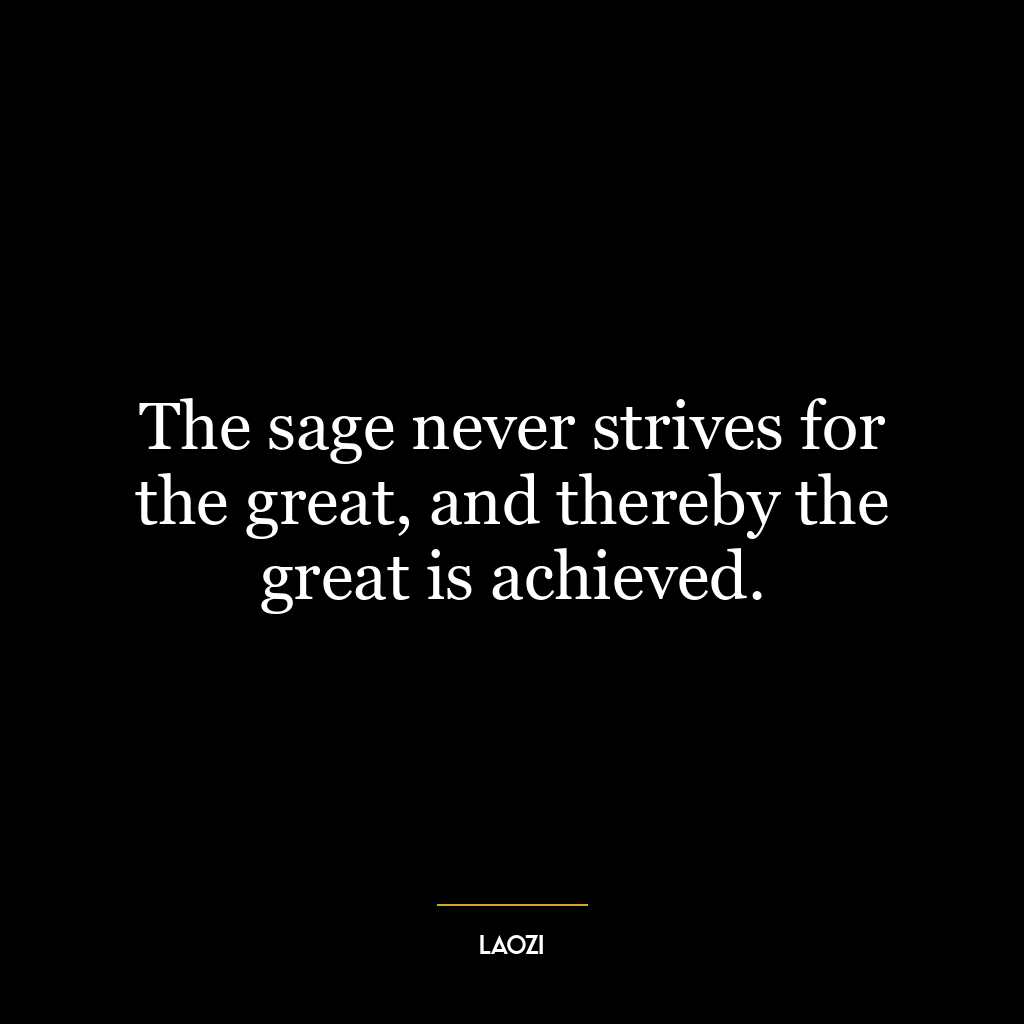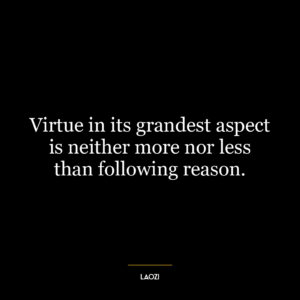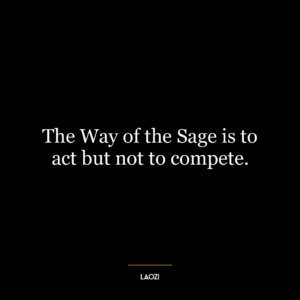The sage never strives for the great, and thereby the great is achieved.
This quote suggests that the sage, or wise person, does not actively pursue greatness or grand achievements. Instead, they focus on the present, the small tasks and responsibilities at hand, and the cultivation of wisdom and virtue. By not striving for greatness, they paradoxically achieve it. This is because true greatness, according to this perspective, is not about external recognition or accomplishments, but about inner wisdom, virtue, and peace.
This idea can be likened to the concept of “effortless effort” or “action through inaction,” central to Taoist philosophy. It’s about allowing things to unfold naturally, not forcing or striving, but being in a state of relaxed attentiveness and letting actions arise spontaneously from that state.
Applying this idea to today’s world, we often see a relentless pursuit of success, wealth, fame, or other external markers of ‘greatness.’ This quote suggests an alternative path: focusing on the present, on personal growth, and on cultivating wisdom and virtue.
In terms of personal development, this might involve focusing less on ambitious goals and more on daily habits and attitudes. It might mean cultivating mindfulness, patience, compassion, and other virtues. It could also involve letting go of the need for external validation and instead finding satisfaction in one’s own personal growth and self-improvement.
For instance, instead of striving to become a famous musician, one might focus on the joy of making music, the process of improving one’s skills, and the pleasure of sharing music with others. In doing so, one might find that they achieve a sense of fulfillment and perhaps even recognition that feels truly ‘great.’
In essence, the quote encourages us to redefine what ‘greatness’ means to us, suggesting that it might be found not in grand achievements but in the wisdom and virtue we cultivate along the way.















